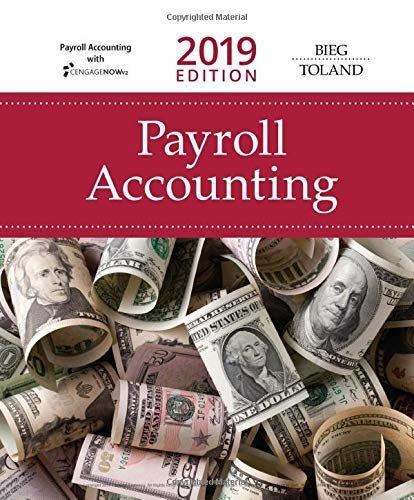

Machine Replacement Decision A company is considering replacing an old piece of machinery, which cost $597,200 and has $350,500 of accumulated depreciation to date, with a new machine that has a purchase price of $484,800. The old machine could be sold for $64,600. The annual variable production costs associated with the old machine are estimated to be $156,500 per year for eight years. The annual variable production costs for the new machine are estimated to be $102,200 per year for eight years. a. Prepare a differential analysis dated April 29 to determine whether to continue with (Alternative 1) or replace (Alternative 2) the old machine. If an amount is zero, enter "0". For those boxes in which you must enter subtracted or negative numbers use a minus sign. Differential Analysis Continue with Old Machine (Alt. 1) or Replace Old Machine (Alt. 2) April 29 Continue Replace Differential with Old old Effect Machine Machine on Income (Alternative 1) (Alternative 2) (Alternative 2) Revenues: Proceeds from sale of old machine Costs: Purchase price Variable productions costs (8 years) Income (Loss) Determine whether to continue with (Alternative 1) or replace (Alternative 2) the old machine. b. What is the sunk cost in this situation? The sunk cost is $ Sell or Process Further Jackson Lumber Company incurs a cost of $386 per hundred board feet (hbf) in processing certain "rough-cut" lumber, which it sells for $552 per hbf. An alternative is to produce a "finished cut" at a total processing cost of $530 per hbf, which can be sold for $760 per hbf. Prepare a differential analysis dated August 9 on whether to sell rough-cut lumber (Alternative 1) or process further into finished-cut lumber (Alternative 2). For those boxes in which you must enter subtracted or negative numbers use a minus sign. Differential Analysis Sell Rough-Cut (Alt. 1) or Process Further into Finished Cut (Alt. 2) August 9 Process Differential Sell Further into Effect Rough-Cut Finished Cut (Alternative 1) on Income (Alternative 2) (Alternative 2) Revenues, per 100 board ft. Costs, per 100 board ft. Income (Loss), per 100 board ft. Determine whether to sell rough-cut lumber (Alternative 1) or process further into finished-cut lumber (Alternative 2)








